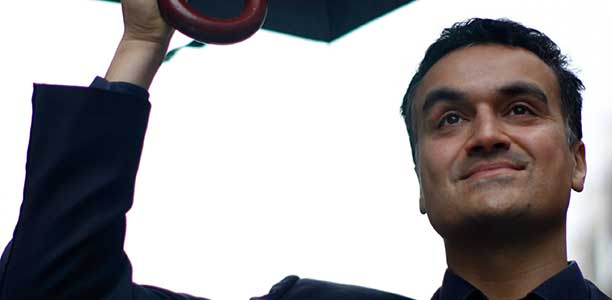Turinys
- In your book, you talk about “the era of coached children”. What does this expression mean?
- Did you rely on testimonials, your own experience or other writings?
- Where does this “wanting to control everything” phenomenon come from?
- How are babies under 3 also affected?
- Are toys intended for the awakening of babies ultimately harmful?
- What are the consequences of this overstimulation of babies?
- What about kindergarten?
- How do you know if you are a “hyper” parent who puts too much pressure on their child?
- Ką patartumėte tėvams?
In your book, you talk about “the era of coached children”. What does this expression mean?
Today, many children have busy schedules. Toddlers multiply activities such as baby yoga, baby gym or even sign language lessons for babies. In fact, parents tend to push their offspring to the maximum of their possibilities. They fear uncertainty and end up wanting to control everything, especially the lives of their children.
Did you rely on testimonials, your own experience or other writings?
The starting point of my book is personal experience. At school, a teacher told me that my son was good in visual arts. So I suggested that he enroll him in a drawing class and he replied “Why do grown-ups always want to control everything?” His reaction got me thinking. I then went to collect testimonies from experts, parents and children all over the world and I discovered that even this frenzy around the child was globalized.
Where does this “wanting to control everything” phenomenon come from?
From a set of factors. First of all, there is the uncertainty about the world of employment which pushes us to maximize the capacities of our children to increase their chances of professional success. In today’s consumer culture, we also come to believe that there is a perfect recipe, that following the advice of such and such a specialist will make it possible to have children made to measure. We are thus witnessing a professionalization of the quality of parents, accentuated by the demographic changes of the last generation. Women become mothers late, so generally have only one child and therefore invest a lot in the latter. They experience motherhood in a more anguished way.
How are babies under 3 also affected?
The little ones are under this pressure even before they are born. Future mothers follow such or such a diet for the good development of the fetus, make him listen to Mozart in order to boost his brain … while studies have shown that this had no effect. After birth, we feel obliged to stimulate them as much as possible with lots of baby lessons, DVDs or early learning games. Scientists believe, however, that babies have the ability to intuitively search their natural environment for the impulse that will allow their brains to build.
Are toys intended for the awakening of babies ultimately harmful?
No study has confirmed that these toys produce the effects they promise. Today, we despise the simple and free things. It has to be expensive to be effective. Yet our children have the same brains as previous generations and, like them, can spend hours playing with a piece of wood. Toddlers don’t need more to develop. Modern toys give too much information, while more basic toys leave the field open and allow them to develop their imaginations.
What are the consequences of this overstimulation of babies?
This can affect their sleep, which is essential for digesting and consolidating what they learn during waking hours. Parents’ anxiety about their baby’s development is having such an impact on him that he may already show signs of stress. However, in a young child, too much stress makes it more difficult to learn and control impulses, while increasing the risk of depression.
What about kindergarten?
Children are asked to master the basics (reading, writing, counting) from an early age, when they have clear stages of development and this early learning does not guarantee later academic success. On the contrary, it may even disgust them to learn. At kindergarten age, children especially need to explore the world around them in a safe and relaxed environment, to be able to make mistakes without feeling it as a failure and to socialize.
How do you know if you are a “hyper” parent who puts too much pressure on their child?
If the only books you read are education books, your child is your only topic of conversation, that they fall asleep in the back seat of the car when you take them to their extracurricular activities, that you don’t never feel like you’re doing enough for your kids and you’re constantly comparing them to their peers… then it’s time to release the pressure.
Ką patartumėte tėvams?
1. The best is the enemy of the good, so don’t be impatient: let your child develop at their own pace.
2. Don’t be intrusive either: accept that he plays and has fun according to his own rules, without interfering.
3. As much as possible, avoid using technology to stimulate toddlers and instead focus on exchanges.
4. Trust your parenting instincts and don’t be fooled by the comparison with other parents.
5. Accept that each child has different skills and interests, over which we have no control. Raising children is a journey of discovery, not “project management”.










